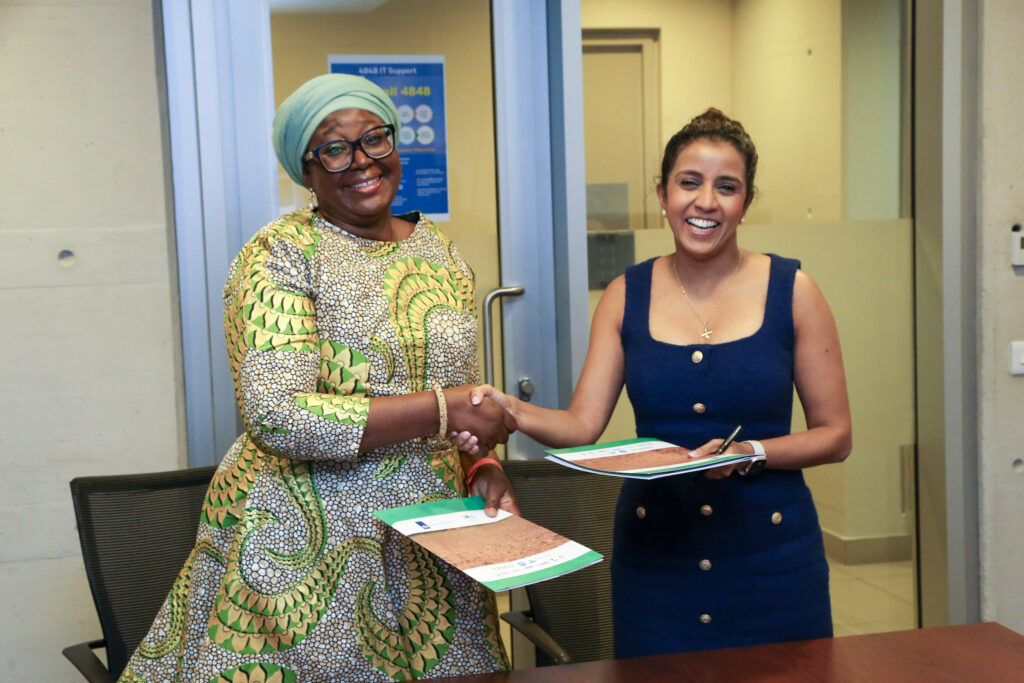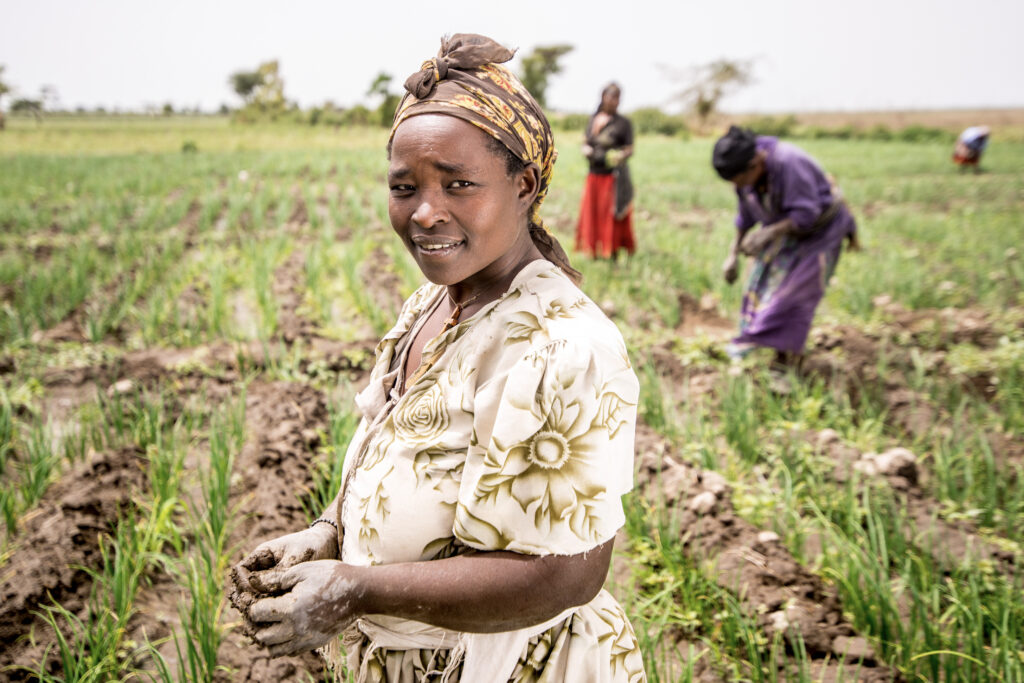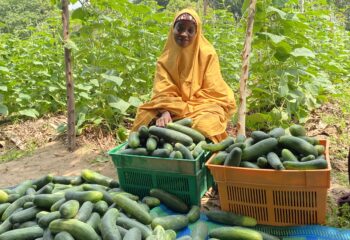
IFDC and the World Bank have signed a Memorandum of Understanding (MoU) on November 4 to strengthen collaboration and enhance the impact of sustainable agriculture initiatives across West Africa.
The agreement formalizes the synergy between IFDC’s Soil Values program, a 10-year, €100 million initiative funded by the Netherlands Directorate-General for International Cooperation (DGIS) and the World Bank’s Food System Resilience Program (FSRP).
The MoU was signed at the World Bank offices in Accra by IFDC Vice President of Global Programs Dr. Oumou Camara and World Bank Senior Economist for Agriculture, West Africa Region, Ashwini Sebastian.
“Signing something for collaboration [is more than] just paper. It’s a shared commitment to turn intentions into action.”
Eric Smaling, Outgoing Soil Values Program Director
The partnership is strategically designed to leverage existing networks and knowledge to accelerate soil fertility management and agricultural productivity across six West African nations: Burkina Faso, Côte d’Ivoire, Ghana, Mali, Niger, and Nigeria.
The collaboration will also prioritize linking coastal and Sahelian countries to strengthen regional agricultural trade and fertilizer markets. A workshop in December will develop a roadmap for enhancing these critical regional linkages.
Outgoing Soil Values Program Director Eric Smaling emphasized the efficiency this MoU encourages and noted the importance of formalizing the agreement: “Signing something for collaboration [is more than] just paper. It’s a shared commitment to turn intentions into action.”
Sebastian underscored the World Bank’s commitment to the collaboration, focusing on the clarity the MoU brings and concluding by offering her congratulations to the entire team.
The Soil Values program, implemented by IFDC in collaboration with partners such as SNV and Wageningen University and Research (WUR), focuses on enabling policies and participatory landscape management to reduce yield gaps, promote soil fertility, and foster smallholder resilience, especially among women.
Several key achievements and innovations made by Soil Values were highlighted during the signing event:
- Gender-Responsive Technology: Scaling up mechanized Zai technology (a conventional soil rehabilitation management practice where organic matter is buried in a small pit to help restore fertility and conserve water in the soil) to restore degraded lands and save significant amounts of labor, especially for women farmers.
- Climate Resilience: Promoting the use of biostimulants, such as Barbary Plante, to enhance soil moisture retention during drought conditions.
- Capacity Building: Training over 90,000 farmers to date (40% women, 46% youth) through robust cascading training models.
Additionally, The World Bank’s FSRP brings several important strengths and resources to the table in partnership with the Soil Values program. Notably, FSRP delivers large-scale financing, regional coordination experience, and technical capacity that help scale up efforts in sustainable soil management, food security, and climate resilience.
With a promise to the Dutch Government to leverage an additional €300 million over the program period, this agreement with the World Bank, as well as agreements with other partners, will be crucial for Soil Values in strengthening access to finance, encouraging private investment, and expanding the use of credit guarantee programs.
Both IFDC and the World Bank committed to integrating climate resilience, gender inclusion, youth engagement, and digital technology as cross-cutting themes, ensuring the long-term sustainability and scalability of their joint goals.
Participants at the signing event expressed optimism about the collaboration, describing the MoU as a milestone marking a shared vision for soil health improvement and agricultural transformation across West Africa. Continued coordination, monitoring, and exchange of knowledge between both organizations will sustain the collaboration and deliver measurable impact in the coming years.
Funded by the Dutch Directorate-General for International Cooperation (DGIS), the Soil Values program is being implemented over 10 years (2024-2033), led by the International Fertilizer Development Center (IFDC), in consortium with SNV and Wageningen University and Research (WUR), as well as knowledge partners such as AGRA, the Center for International Forestry Research and World Agroforestry (CIFOR-ICRAF), the International Institute of Tropical Agriculture (IITA), ISRIC – World Soil Information, and the International Water Management Institute (IWMI).





